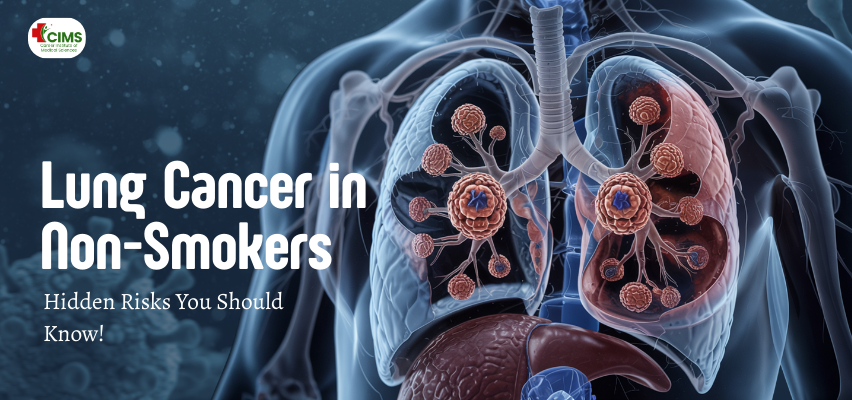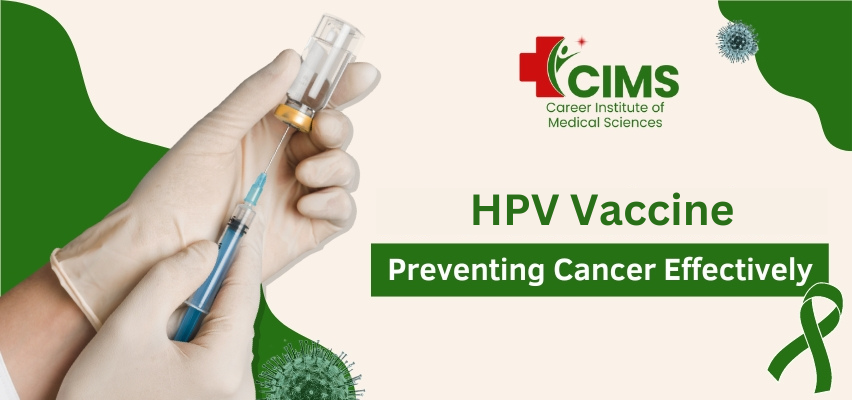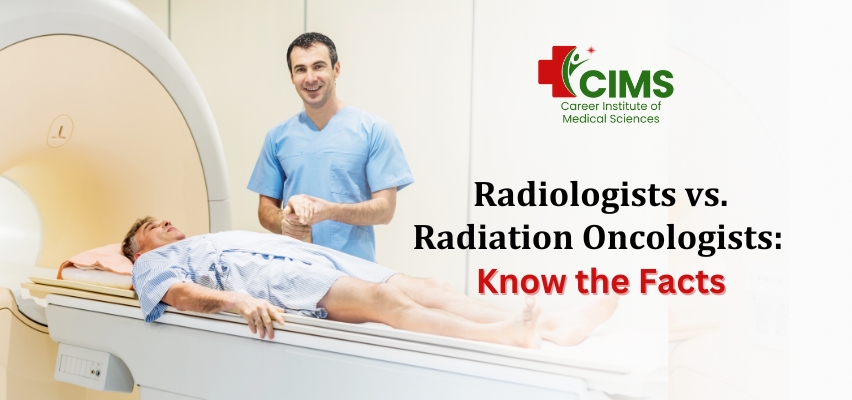Table of Contents
ToggleIntroduction: What Causes Lung Cancer in Non-Smokers?
When most people hear the word ‘lung cancer’, they immediately think of smoking as the primary cause. However, what causes lung cancer in non-smokers is a growing health concern worldwide. Many people who have never smoked or have only been exposed to cigarettes passively are now being diagnosed with this life-threatening disease.
The misconception that non-smokers are completely safe often delays diagnosis and treatment. Understanding the hidden risks and early warning signs can save lives.
At CIMS Hospital Bhopal, one of the best cancer hospitals in Central India, we regularly see patients who have never smoked but still developed lung cancer due to hidden risks.
With advanced facilities, experienced oncologists, and a vision to provide affordable treatment, CIMS Hospital ensures that both smokers and non-smokers get timely care and accurate diagnoses.
Reasons: What Causes Lung Cancer in Non-Smokers?
There are several reasons why lung cancer in non-smokers develops, even without direct exposure to cigarettes. What Causes Lung Cancer in Non-Smokers? Some of the most common causes include:
- Radon Gas Exposure – A naturally occurring radioactive gas that can seep into homes through the ground.
- Air Pollution – Long-term exposure to polluted air, especially in cities, increases the risk of lung cancer.
- Secondhand Smoke – Breathing in smoke from other people’s cigarettes can be just as harmful.
- Occupational Exposure – Jobs that involve asbestos, arsenic, diesel fumes, or other carcinogens carry a higher risk.
- Chronic Lung Diseases – Conditions like pulmonary fibrosis can make the lungs more vulnerable to cancer.
- Genetic Mutations – Changes in DNA can trigger abnormal cell growth, even without smoking.
What Causes Lung Cancer in Non-Smokers: Information Video
Is Lung Cancer Genetic?
Yes, in many cases, lung cancer in non-smokers has a strong genetic component. If your family has a history of cancer, your risk may be higher. Genetic and biological factors include:
- Inherited Mutations – Some people inherit faulty genes that increase cancer risk.
- EGFR Mutation – A specific mutation often found in Asian non-smokers, especially women.
- ALK & ROS1 Rearrangements – Gene changes linked with non-smoker lung cancer cases.
- Hormonal Influence – Some studies suggest oestrogen may play a role in lung cancer among women.
- Weaker DNA Repair – In some individuals, the body cannot repair DNA damage effectively, leading to cancer.
How I Knew I Had Lung Cancer – Common Signs of Lung Cancer
For many non-smokers, lung cancer comes as a shock. The symptoms are often mistaken for common respiratory issues. If you notice any of these signs, don’t ignore them:
- Continuous cough that does not go away.
- Shortness of breath or difficulty breathing.
- Chest pain or discomfort.
- Unexplained weight loss.
- Tiredness and lack of energy.
- Coughing up blood (in advanced cases).
These symptoms should prompt an immediate consultation with a doctor.
Data on Lung Cancer in Non-Smokers
Factor | Percentage Contribution to Non-Smoker Lung Cancer |
Radon Gas | 10–15% |
Air Pollution | 15–20% |
Secondhand Smoke | 20–25% |
Occupational Exposure | 10–15% |
Genetic Mutations | 30–40% |
This table shows that genetics and environmental factors together account for a large percentage of lung cancer cases in non-smokers.
What Causes Lung Cancer in Non-Smokers & What Can You Do to Protect Yourself?
While you cannot control your genes, you can certainly lower your risk of lung cancer in non-smokers by taking proactive measures:
- Test Your Home for Radon Level – Simple testing kits are available to check indoor radon levels.
- Avoid Smoke – Stay away from smoking areas and create smoke-free homes.
- Protect Yourself at Work – If your job involves dust, fumes, or chemicals, wear protective equipment.
- Maintain Good Air Quality – Use air purifiers indoors and avoid outdoor exercise during peak pollution hours.
- Stay Healthy – A balanced diet, regular exercise, and good sleep boost immunity.
- Regular Screening – If you have a family history of cancer or persistent symptoms, consult a specialist for early detection.
Conclusion: What Causes Lung Cancer in Non-Smokers?
If you or a loved one has lung-related problems, don’t delay. Consult the cancer specialists at CIMS Hospital Bhopal, and take the first step towards better health. At CIMS Hospital, Bhopal, one of the premier cancer hospitals in Central India, we understand the importance of early detection and advanced treatment. Our expert oncologists provide affordable and comprehensive care, ensuring patients get access to chemotherapy, radiotherapy, surgical oncology, and genetic testing.




